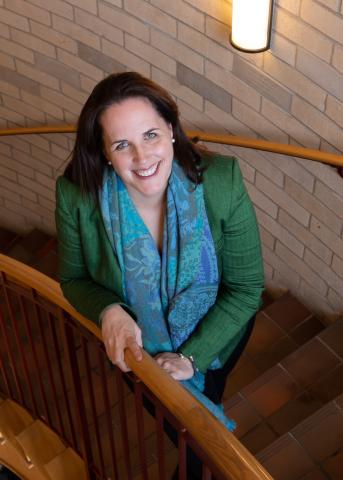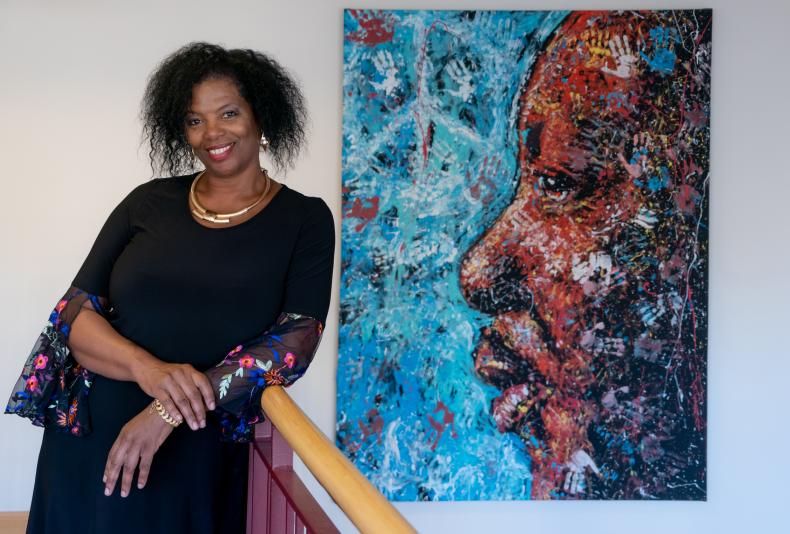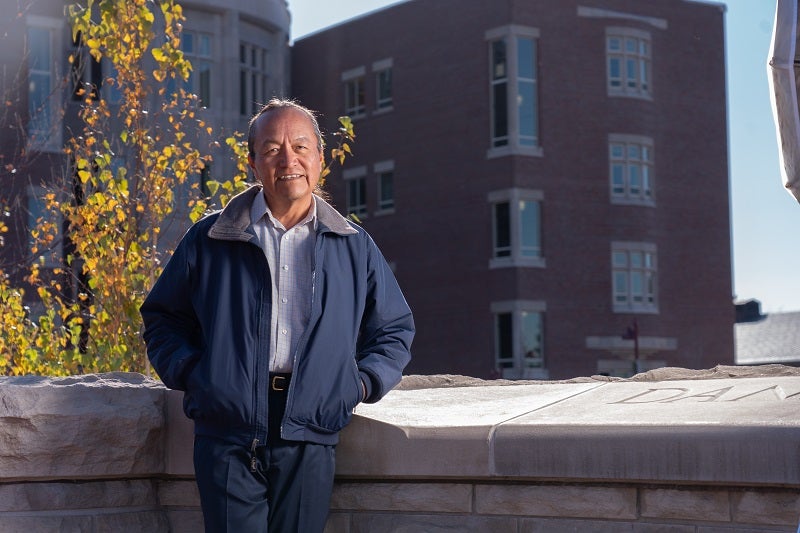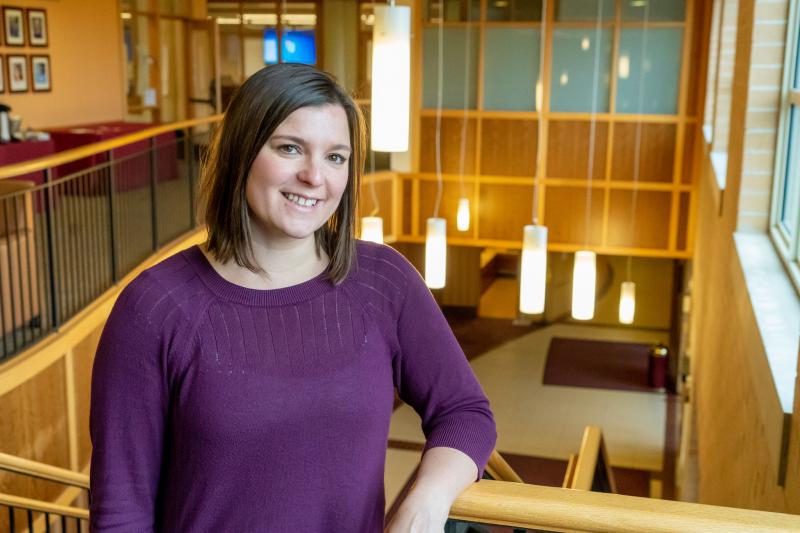Celebrating Women's History Month with Ann Ayers
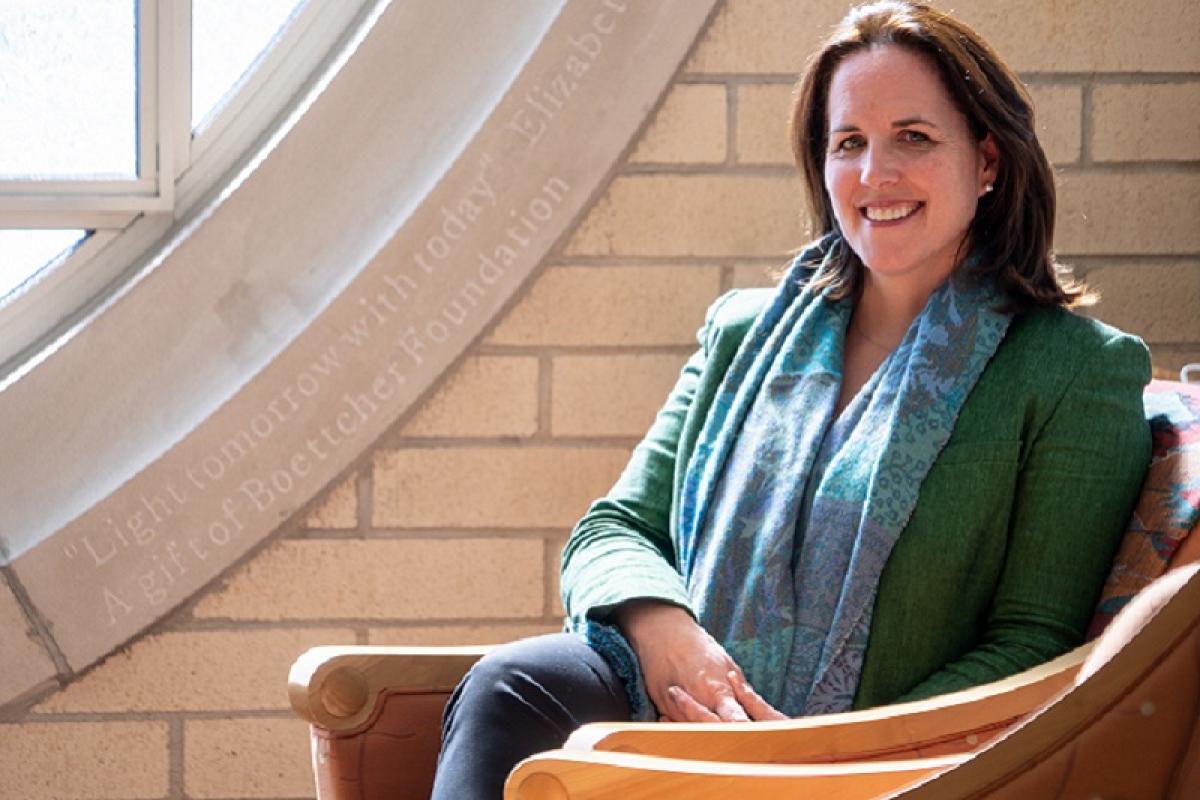
The University of Denver is committed to living our values of diversity and inclusion. We recognize that our community and institutional success is dependent on how well we engage and embrace the rich diversity of our faculty, staff, administrators, students and alumni. With that shared value in mind, throughout this academic year, we plan to publish a series of articles in the Bridge to celebrate cultural and ethnic heritage months. In partnership with Human Resources & Inclusive Community and the Staff of Color Association (SOCA), we will feature a staff or faculty member in recognition of each heritage month, along with an event to honor one another and learn about our unique differences.
Ann Ayers didn’t even open the email at first. Instead, she acted on her first instinct when she saw a job description for dean of the Colorado Women’s College (CWC). She hit delete. Her entire career, after all, had been as a strategist and negotiator in the business community. She wasn't sure she'd fit into the world of academia.
But at a friend’s insistence, she took a second look. "'Ann, this is your life’s work,'” she remembers her friend saying. "'It’s your chance to take your experience building organizations and partnerships with purpose and pair it with your passion about women’s advancement and gender equity.'"
Her transition into higher education, she says, has not been easy, but it has been rewarding. She prefers not to talk about her “responsibilities” on the job, but rather, “my opportunities, my sources of joy, because working on behalf of women keeps me up at night and gets me out of bed in the morning!”
This March, in recognition of Women’s History Month, Ayers told the DU Newsroom about her Colorado upbringing, the CWC's changing role in a woman's education and a meaningful car ride with Supreme Court Justice Ruth Bader Ginsburg.
The stated mission of the CWC is “to advance women in the 21st century.” What does that mean? How is that different from advancing women in the past?
Well, let’s just look at CWC’s history (which dates to 1888). Advancing women in the 19th century, when the college was founded, meant giving them access to higher education, which they were not able to get at other colleges and universities. In the 20th century, it was still about access, but it grew to be about access to more subjects, more degrees and more skill development within those institutions. Then, when women were accepted into mainstream (men’s) institutions, it changed the game entirely. Women’s colleges needed to be differentiated by something other than their courses: by community, networks, the benefits of single-gender educational forums.
Today, as nearly 80 percent of women’s colleges have closed, giving way to coed models and evolving educational systems, advancing women is less about content and knowledge, and more about transformational relationships, wisdom, education on a continuum, and relevancy to market and employer needs. The International Monetary Fund released a discussion report in November suggesting that as many as 180 million women’s jobs are at risk as a result of artificial intelligence.
Is that why you’ve said, “supporting the advancement of women is the smartest investment our society can make?”
We are 51 percent of the global population, and we are not contributing 51 percent to ideas, inventions, culture and solutions. Human beings are the hope and the promise of the future—curing disease, solving world hunger, creating lasting peace, discovering new frontiers. Why would we keep part of the team on the bench when so much is at stake? Investing in women is investing in the future of humanity.
How is the CWC making that investment?
The CWC has a 130-year history of disrupting models of work and education, starting with the founders’ decision to create a school that would accept women when other universities wouldn’t. Currently, the model for higher education is moving toward education on a continuum throughout life, where stackable credentials, non-credit courses and experiential learning are increasingly in demand.
It’s my role to lead our team in thinking deeply about how we can continue to harness disruption in the models of work and education to accelerate the advancement of women and gender equity, and shift the world for generations to come. Our planning process has not been conventional. It involves disruption conversations, design thinking sessions and lots of pressure testing and proof-of-concept exercises. We are exploring the research and activities that will most help women in our region and across the country. We’re excited to roll that out to the community over the summer.
Is there one particular area of women’s history we should reflect on this month?
For me, it’s always most valuable to reflect on something that’s personal when I’m looking for inspiration. I am a fifth-generation Coloradan, and there are stories in my family’s history about women herding cattle and working on farms. Raising children. Taking over men’s work during both world wars. Building businesses. Earning degrees. Facing and surviving incredible loss. We all have stories and histories we can learn from. Taking that time to connect those stories to ourselves, and then thinking about the history we are making—now that’s energizing!
Who in your life has inspired you?
When I was in law school at the University of Virginia, I had the opportunity to pick [U.S. Supreme Court Justice] Ruth Bader Ginsburg up at the Charlottesville airport, take her to dinner with a group of students, and take her to her hotel after dinner. There is so much to say about RBG, but most of all I was inspired by her resilience and humor. She’s so incredibly brilliant and yet very humble and relatable. I wish I had recorded the conversations so I could go back and savor every word she said, but it’s how she made me feel that I treasure. Worthy.
In an effort to make the University an inclusive and welcoming place to be, what would you like to see changed or improved?
OneDU is a work in progress. Gender equity is a work in progress. But, I can already see the shift happening and I believe we will soon be a national leader in collaborating not just across campus, but more importantly, across the complex challenges that face our world today. ...
There is power in analysis, research, questioning, skepticism, debate and curiosity. But, I believe the greatest power in the world is assuming positive intent. If we could all expect and bring out the best in one another, DU’s potential would know no limits.









